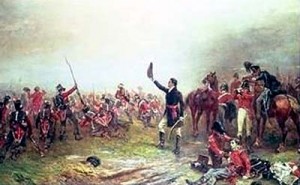Undeterred by any sense of decency, honesty and national responsibility, Labor is going in hard to bring down Commissioner Dyson Heydon, former High Court Judge and eminent law academic with an unimpeachable reputation.
They claim Heydon is politically biased and unfit to preside over the royal commission into union corruption. They draw this conclusion from his (alleged) acceptance of an invitation to attend a Liberal Party fundraiser.
The starting point of the argument is untrue. Commissioner Heydon accepted an invitation to give the annual Sir Garfield Address, a prestigious academic legal occasion PROVIDED he was not engaged in the royal commissioner. When he discovered the occasion was being advertised as a Liberal Party fundraiser, he cancelled. Indeed, on his own evidence he would have cancelled if the Royal Commission was still running. If the premise is untrue then Labor doesn’t have an argument.
But let me consider what would necessarily follow from the proposition that Commissioner Heydon did accept an invitation to attend a Liberal Party fundraiser. Analytically nothing of use to Labor necessarily follows. There is no contradiction in claiming Heydon accepted an invitation to a Liberal Party fundraiser and he will be scrupulously impartial in dealing with the evidence in the royal commission. Indeed, he may attend a hundred fundraisers and it will still not give the necessary conclusion Labor wants. Those who confuse an inductive argument with a deductive argument might still insist that it does.
The measure of Commissioner Heydon’s suitability (or anyone else’s) to preside over a like inquiry is the empirical evidence. Is he academically qualified to the required level? An examination of his academic record would provide the answer. Does his record demonstrate the required competence, impartiality and moral judgment? An examination of his public record will provide the answer. Is his character without stain? Dyson Heydon’s character would be known widely among his legal confreres. Commissioner Heydon passes each of these requirements with more than adequacy. That’s why he is invited to preside such commissions or investigations. The worst that could be said if Labor’s charge is true, and it’s not, is that Heydon would be guilty of being politically imprudent in a trivial matter. But it’s only politically imprudent because corrupt minds will always draw as much political profit as they can from any situation, true or untrue. Truth or questions of right and wrong are not considerations. Neither is logic.
All the corrupt minds in Labor need is the appearance of a valid argument. Clearly, they think they have it in the Heydon case. They have gone into full Alinsky mode to promote and propagate a barefaced lie and calumniate an outstanding member of Australian society. Proving themselves outstanding graduates of Alinsky’s tactics they baulk at nothing to keep the heat in the media. Like all parties driven by power they know the effectiveness of constant repetition. They are, of course, aided in their campaign by the usual enterprises and journalists who left off the profession of journalism to become political players in their own right.
Labor politics is about power: power in unions, power in the party, power between factions. Nothing else matters in politics.
The Heydon case sounds an ominous warning for Australia’s system of government. Indeed, there are those on the left who are not reluctant to express a view that a liberal-democratic system of government is no longer adequate to deal with modern society’s problems.
Gerard Wilson
